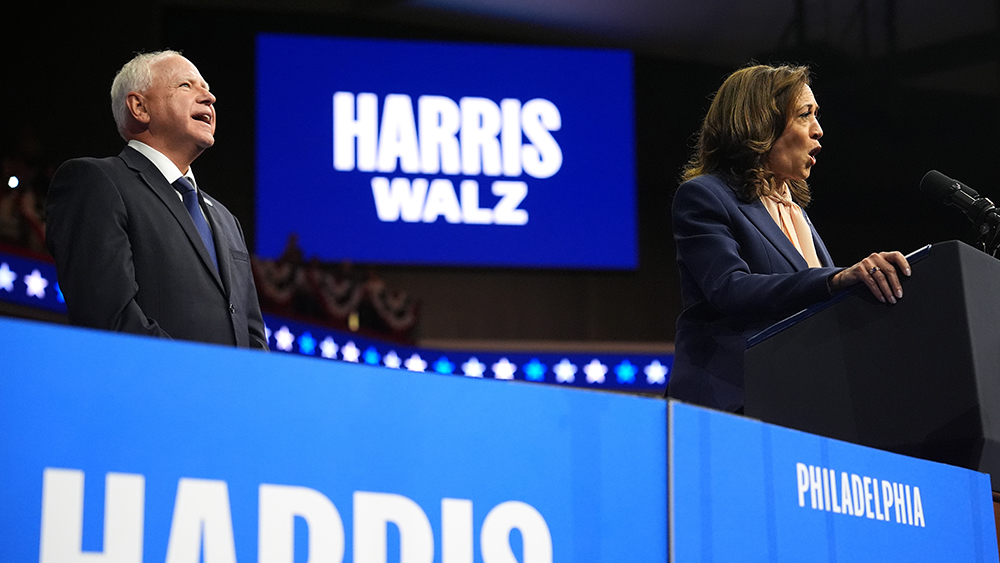WARNING: Biden-Harris regime pulling off an American Nord Stream operation by ending Gulf of Mexico oil exploration this December
09/17/2024 / By Belle Carter

United States energy security was placed at risk after a federal court’s recent ruling throwing out a National Marine Fisheries Service (NMFS) “biological opinion” that is legally necessary for oil and gas exploration and drilling to be conducted.
The federal judge at the U.S. District Court for the District of Maryland gave NMFS, a division of the Commerce Department, until Dec. 20 to complete a new opinion.
Under the ruling, the Biological Opinion for the U.S. Gulf of Mexico will lapse effective December 20, threatening to halt new and existing oil and natural gas production and activity in the region. American Petroleum Institute (API) President Mike Sommers already sent a letter to Commerce Secretary Gina Raimondo on Sept. 6 calling for help.
Moreover, EnerGeo Alliance, National Ocean Industries Association (NOIA) and Chevron U.S.A. Inc. together with API also released on Thursday, Sept 12, a joint statement after they filed an appeal regarding the decision to vacate the NMFS Biological Opinion in the Gulf of Mexico.
They pointed out how oil and natural gas production in the Gulf of Mexico is a driving force of energy security in the U.S. and worldwide. It supports thousands of jobs and generates billions of state and local revenue. If the ruling is not contested, a critical source of current and future U.S. energy supply could be in jeopardy during persistent inflation and geopolitical instability, the statement added.
“We intend to pursue all legal means to prevent the far-reaching consequences of this ruling for Gulf Coast economies and American families that depend on access to affordable, reliable energy.
By vacating the biological opinion without allowing enough time for NMFS to issue a revised opinion, this court decision threatens to significantly slow down or halt all permits for routine, daily operations. This leaves current and future energy production at risk and undermines worker safety and environmental protection efforts,” the groups said in the release.
Critics say the judge’s arbitrary, capricious and malicious ruling is a treasonous effort to destroy U.S. energy security, like its Nord Stream pipeline operation.
According to the U.S. Energy Information Administration, the Gulf of Mexico accounts for about 15 percent of all domestic oil production or nearly 2 million barrels of oil per day. The region also supports about 412,000 jobs, contributed over $34.3 billion to the U.S. gross domestic product and generated $6.1 billion in federal government revenue, API said.
And it does not end here, according to reports, the Biden-Harris regime would be shutting in 1.8 million barrels per day of production on the heels of having gutted the Strategic Petroleum Reserve.
Harris’ quick U-turn on energy policies revealed during the debate
Meanwhile, watchers of the first, and possibly only, presidential debate between Republican presidential nominee Donald Trump and Democrat Kamala Harris, were taken aback by the energy policies presented by Harris during the faceoff.
Even as she promoted her efforts to boost clean energy, she said that the Biden-Harris administration has overseen “the largest increase in domestic oil production in history because of an approach that recognizes that we cannot over-rely on foreign oil.” The known Green Deal promoter surprised her supporters and opponents as Harris and President Joe Biden claimed to be champions in the fight to slow global warming.
After Trump withdrew the U.S. from the Paris Agreement on climate change, the incumbent administration reentered the global pact aimed at reducing emissions. They set a target to slash U.S. greenhouse gas emissions by 50 percent by 2030 and shift away from fossil fuels to renewable energy sources.
Republican strategist Liam Donovan said it was notable that at a debate in energy-rich Pennsylvania, Harris chose to “brag about something that Biden has barely acknowledged – that domestic fossil fuel production under the Biden administration is at an all-time high.”
Harris also went one step further, rebranding the 2022 Inflation Reduction Act as a boon to fracking and other drilling, thanks to lease-sale requirements inserted into the bill by independent West Virginia Sen. Joe Manchin, a key swing vote in the Senate and a strong supporter of the fossil fuel industry.
Sommers said Harris’ comment in support of fracking reflected political reality in the closely contested election. “You have to be for fracking to be elected president in 2024,” he said. “That’s good news for our industry and great news for American consumers.”
Asked why he was so confident about the need to support fracking, Sommers offered a one-word answer: “Pennsylvania.”
Not only is the Keystone State a key swing state in the election, but Pennsylvania also “is the beating heart of the natural gas industry in this country,” Sommers said, second only to Texas in total production.
“You don’t win Pennsylvania without supporting fracking and you don’t win the presidency without Pennsylvania,” Sommers said.
Trump, meanwhile, has vowed to rescind unspent funds from the climate law and other programs and said he will target offshore wind projects. He said Harris would move to restrict onshore oil and gas production if elected. “They’ll go back to destroying our country, and oil will be dead, fossil fuel will be dead,” the former president said.
Head over to EnergySupply.news for stories like this.
Sources for this article include:
Submit a correction >>
Tagged Under:
affordable energy, API, big government, biological opinion, BSEE, Chevron, Collapse, deception, Donald Trump, EnerGeo Alliance, energy policies, energy security, energy supply, geopolitical instability, green deal, Gulf of Mexico, Joe Biden, Kamala Harris, lies, maryland, natural gas production, NMFS, NOIA, Nord Stream, White House
This article may contain statements that reflect the opinion of the author
RECENT NEWS & ARTICLES
COPYRIGHT © 2017 BIG GOVERNMENT NEWS





















